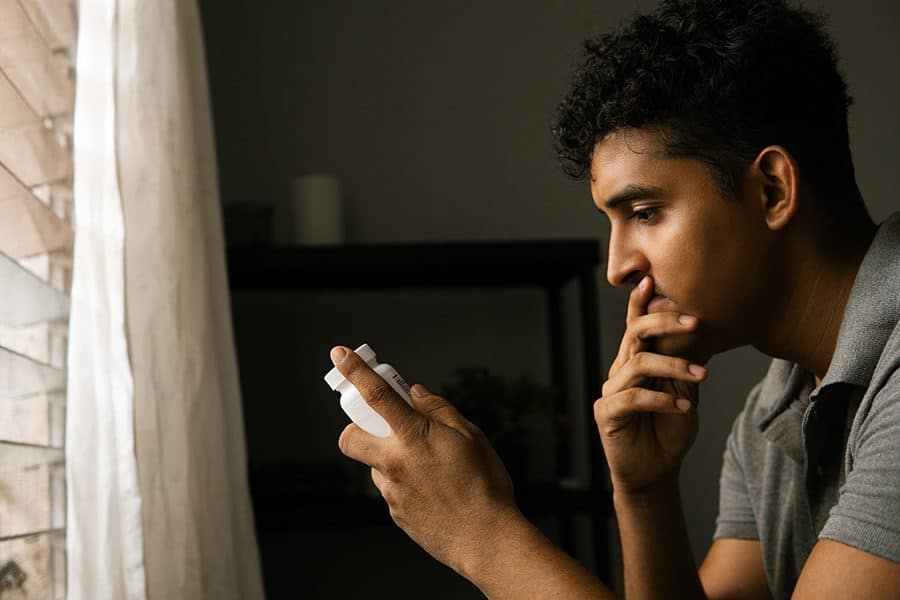The duration of cocaine detection in the human body varies significantly depending on several factors. This article will explore the key determinants that influence how long cocaine remains detectable in different bodily fluids, including urine, blood, saliva, and hair. If you struggle with cocaine use, we offer cocaine addiction treatment in Houston, Texas.
What is Cocaine?
Cocaine is a white, crystalline powder that comes from coca leaves. It’s an intense euphoria-producing stimulant drug with a high potential for addiction. The cocaine base (crack) looks like irregularly shaped small white rocks.
Cocaine is derived from the leaves of the coca plant which is native to South America. It has been used for centuries in the form of tea by brewing the leaves or by chewing on the leaves, for the stimulant effect.
Some of the street names for cocaine are:
- Coca
- Coke
- Blow
- Crank
- Flake
- Snow
How Long Can Cocaine Be Detected?
Cocaine detection times depend on what is being tested.
- Urine: Cocaine is typically detectable in urine for 3 to 4 days after use.
- Blood: Cocaine can be detected in blood for 1 to 2 days after use.
- Hair: Cocaine metabolites can be detected in hair follicles for up to 90 days following use.
- Saliva: Cocaine is generally detectable in saliva for 24 to 48 hours after use.
Factors Influencing Cocaine Detection Time
- Usage Patterns: Frequent and heavy cocaine use can lead to higher concentrations in the body, extending detection times. Chronic users may experience prolonged detection due to the accumulation of cocaine metabolites.
- Tolerance: Individuals with a high cocaine tolerance may have increased detection times due to the body’s need to process larger amounts of the drug.
- Cocaine Purity: The purity of cocaine can significantly impact its metabolism and detection. Adulterants or “cut” substances can alter the drug’s effects and influence how long it remains in the system.
- Individual Metabolism: Factors such as age, gender, genetics, and underlying medical conditions can influence the rate at which the body metabolizes and eliminates cocaine.
- Health and Hydration: Overall health and adequate hydration play a crucial role in the body’s ability to eliminate toxins, including cocaine metabolites.
- Use of Other Substances: The presence of other substances, such as alcohol, medications, or other drugs, can interact with cocaine metabolism, potentially affecting detection times.
What are the Immediate Effects of Cocaine?

Cocaine use results in a short-lived and intense euphoric high. Depending on how it’s used, the effects only last for a few minutes to an hour. Common methods include:
- Snorting: Onset of effects felt within 3-5 minutes and may last for up to 20 minutes
- Injecting: Onset felt within 5-10 seconds and lasts for up to 20 minutes
- Smoking: Effects start within 5-10 seconds and last up to 20 minutes
- Orally: Effects begin within 10-30 minutes and last for up to 90 minutes
Immediate effects make people feel:
- Alert
- Energetic
- Restless
- Irritable
- Anxious
- Paranoid
How is Cocaine Metabolized in the Body?
Cocaine is processed in your body by enzymes in the blood and liver. The metabolites (substance produced in the process of breaking down drugs) created by the metabolism process travel to the urine, hair, saliva, and bloodstream, and then leave the body. Because the liver plays an important part in metabolizing cocaine, extended use or cocaine overdoses can damage
Cocaine has a shorter half-life than most other drugs at about 1 hour. This means that your body metabolizes it quickly. Within 1 to 3 hours, the dose is half of the original dose, and within a few days, your body has completely eliminated it. Of course, this all depends on the amount of the dose, your metabolism, and whether you’re a first-time or frequent user.
Does the Method of Use Affect How Long Cocaine Stays in Your System?
The quality and purity of the cocaine, along with your metabolism, determine how long it’s present in your system. Additionally, people who binge on cocaine may take longer to metabolize it. The length of time cocaine stays in your body and produces effects is different from the length of time it shows up on drug tests.
In general, the method of ingesting cocaine affects how quickly you feel it and how long the effects last. But, the drug clears your body at a similar rate despite the method of use. Smoking, snorting, injecting, and oral intake all result in at least a couple days of the substance being in your system.
How Long Does Cocaine Stay in Your System if Combined with Alcohol?
Cocaine and alcohol are often used together for recreational purposes, this is a dangerous combination. Combining them can cause cardiotoxic effects and increase a person’s risk for a deadly overdose and other life-threatening outcomes such as:
- Stroke
- Heart attack
- Liver problems
- Cocaine-related deaths
When cocaine and alcohol are combined, it results in a new metabolite that stays in the body for a longer period of time. The new metabolite is cocaethylene, and it has a half-life that is 3 to 5 times longer than cocaine. It’s linked to seizures, impaired immune system, and liver damage. Alcohol also increases the peak concentration of cocaine by about 20% which creates higher blood alcohol concentrations.
Can Other Substances Cause You to Test Positive for Cocaine?
Drug tests are often used to detect the presence of illicit substances in a person’s system. Cocaine is a common drug tested for. However, it’s important to know that other substances can possibly cause false positive results in tests. In the case of cocaine, there are several substances that can cross-react with drug tests including:
- Lidocaine: lidocaine is an anesthetic used in medical procedures.
- Procaine: a local anesthetic used in dental procedures
- Novocaine: a local anesthetic used in dental procedures
- Amphetamines: stimulant drugs that are used for ADHD
- Antidepressants: prescription medications to treat depression
- Coca tea: is used for gastrointestinal problems and motion sickness
The Lovett Center Offers Cocaine Addiction Treatment

The Lovett Center in Houston, TX, is ready to help you or someone you care about. If there is someone in your life struggling with cocaine use, we have addiction treatment programs and experience to create an individualized treatment program.
Because withdrawal from cocaine can be extremely daunting, many people need a medically supervised detox. Our detox center can help you overcome your physical dependence on cocaine with the least amount of discomfort. This prepares you to overcome your psychological dependence.
Our therapists and counselors are experienced addiction specialists and are trained in behavioral therapy, family therapy, and individual counseling to name a few. Depending on the severity of the addiction, we also have treatment programs that range from residential to outpatient programs. Our evidence-based treatment approach has helped many other people go on to achieve their goals and live a full life. You can too if you take that first step and contact us today.





